On 15 January 2024, the Republic of Nauru severed its diplomatic ties with Taiwan, restoring relations with the People’s Republic of China (PRC). The Nauruan government’s announcement comes just days after the election of Taiwan’s new pro-sovereignty president, Lai Ching-te: a man labelled as a “troublemaker” by Beijing for his support of Taiwanese independence. Most media attention has focused on the geopolitics behind this move. For decades, Taiwan and the PRC have engaged in diplomatic chess as the Taiwanese vie for recognition as an independent state. Both Taiwan and the PRC have attempted to lure countries in the Global South with cash payments, concessional loans, and development aid. Given the PRC’s global influence, it is no surprise they have the edge. Gradually, Taiwan’s diplomatic allies are dwindling in number to just 11 countries and the Vatican. During Tsai Ing-wen’s recent presidency, 10 countries swapped allegiance from Taiwan to the PRC (including Kiribati and the Solomon Islands).
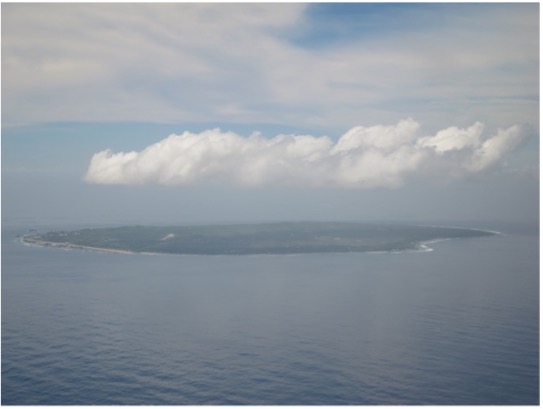
But for Nauru, the switch is by no means capricious. For near two decades, Taiwan and Australia were the only countries with a permanent diplomatic presence in Nauru. During my fieldwork on the small Pacific island, I stayed in the Taiwanese ambassadorial residence. Taiwan’s Ambassador was a staple at most local events. The Taiwanese government looked to curry favor in Nauru through medical and agricultural projects and regular cash payouts, including monthly stipends of AU$5000 to each of Nauru’s government ministers. Despite offers to revert to the PRC, who Nauru briefly flitted to for AU$130 million, the Nauruan government stuck with the Taiwanese. Many Nauruans had been to Taiwan and held loyalty to the country that China claims as its own territory. Some I spoke with were deeply sympathetic to Taiwan, given their own island’s long struggles for independence. For Nauru, this recent decision portends an ominous future ahead. More than anything, what it signals is economic desperation.
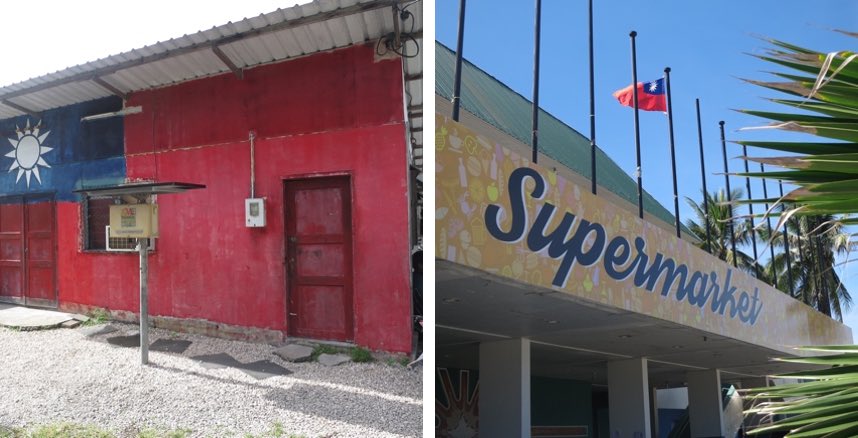
Nauru has a tragic resource curse history. Across the 20th century, the island was mined in earnest for phosphate under the British Phosphate Commission, and essentially Australian-British-New Zealand colonial control. After independence in 1968, Nauruans took on phosphate mining themselves, momentarily holding the world’s second highest GDP per capita in 1975, after Saudi Arabia. But without transitional support and effective abandonment from Australia (Australia eventually agreed to reparations of AU$73 million through the International Court of Justice), the Nauruan story is a tragic case of boom-then-bust capitalist dependency. Ostentatious displays of wealth (ministerial shopping trips to Dubai, mismanaged real estate investments from Fiji to Waikiki, and notoriously, a failed London West End musical, Leonardo: A Portrait of Love) combined with the subjection of islanders to predatory financial scams, pushing Nauru to near-bankruptcy in the late 1990s. From 2001-2010 then 2012-2023, the Nauruan government then hosted a controversial offshore asylum operation with Australia: the impacts of which I examined in my long-term research. Although damaging for islanders and migrants alike, this policy of long-term holding Australia’s asylum seekers and refugees on the island provided Nauru with over AU$5 billion since 2001. Reliance on mineral exports then migrant imports, increased the vulnerability of a nation dependent on external trade for survival. Now that the asylum deal is winding down, the Nauruan government is scrambling for new income sources. Playing dollar diplomacy with Taiwan and the PRC is one of few remaining tactics used by the Nauruan government to secure extra revenue in the face of a bleak future.
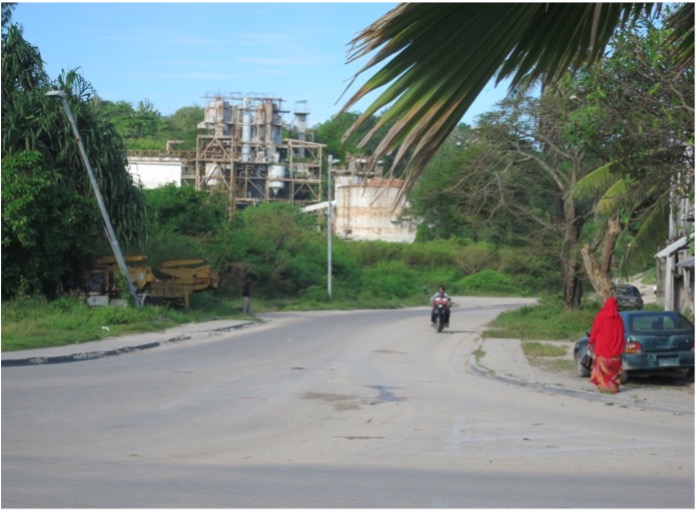
Money has largely shaped Nauru’s foreign policy surrounding diplomatic recognition. In 1980, Nauru established official relations with Taiwan. They maintained diplomatic relations for over two decades until Nauru’s financial difficulties first arose. The offer of AU$130 million from Beijing provided Nauru with much needed economic support, pushing the government to switch to China in 2002. But after only 3 years, Nauru reverted to Taiwan. In exchange, they received US$4 million to repay Kiribati and Tuvaluan phosphate industry workers, who had been stranded in Nauru for years with the collapse of the island’s economy. In 2006, they received another US$10 million to bail out Air Nauru, a new Boeing 737 jet, doubled health care assistance, and monthly ministerial stipends.
Nauru has also used these tactics of state recognition outside the Asia Pacific. In 2009, Russia successfully courted Nauru with AU$50 million to recognize the sovereignty of Abkhazia and South Ossetia, regions of Georgia seized by Russia in 2008: only the fourth country to do so after Russia, Nicaragua, and Venezuela. Just a year prior, Nauru had recognized Kosovo’s independence but later derecognized it in 2019. Other schemes include Operation Weasel: an American and New Zealand-led operation in the early 2000s designed to help North Korean scientists defect through Nauru’s embassy in Beijing. Peddling diplomatic passports, offshore banking, and money laundering (an estimated US$70bn in Russian mafia money went through Nauru’s banks in 1998 alone) are just some of many money-making ruses in Nauru.
Strategically, the Nauruan government timed their announcement just days after the election of Lai Ching-te. This timing would have been brokered for a hefty sum. Reports conservatively estimate that Beijing offered Nauru US$100 million a year for the switch. The reality is likely far greater. During my fieldwork in Nauru, the Taiwanese were at the beck-and-call of the Nauruan government in fear of losing diplomatic recognition. This resulted in all kinds of local sponsorship and support: including funded medical treatment for Nauruan citizens to be flown to Taiwan, resident Taiwanese doctors in Nauru’s hospitals, and medical equipment and local medical training support. Taiwanese community garden and ‘Healthy Nauru’ programs dotted the island, designed to encourage healthy eating. Local school meals were provided through the Taiwanese community garden project. Along with Australia and New Zealand, Taiwan also paid into Nauru’s Intergenerational Trust Fund to help replace the island’s dwindling phosphate revenues. More informally, Nauruan politicians would often court the Taiwanese when in need of financial support. This cash cow arrangement led to Taiwanese exasperation, but it did not stop Taiwan’s obsessive fight with China to be conducted through checkbook diplomacy. In the Solomons, this competition between China and Taiwan has led to violent money politics that have had real impacts on Pacific stability.
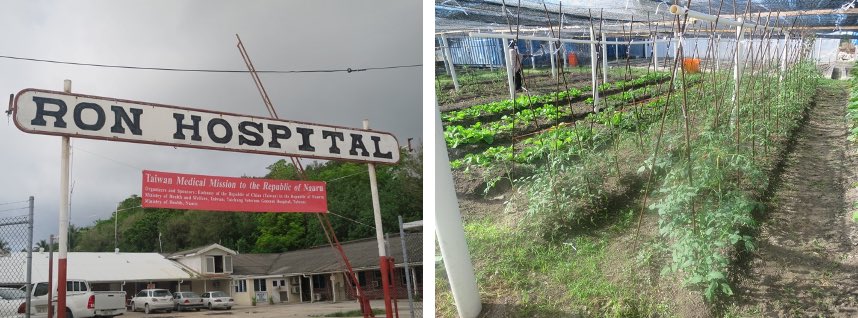
Australia has often accused Taiwan and China of a lack of transparency surrounding their development aid, highlighting the damage their struggle is doing in the Pacific. But the Australian and international community have contributed to this damage too. For centuries, the Pacific islands have been a battleground for different – often harmful – forms of western resource extraction. Countries in the Global North have profited immensely from these practices of extractive consumption: from phosphate mining to fuel global agricultural production to outsourced border enforcement to feed political spectacles. Post-mining realities endure in Nauru’s dependence on a world market, which has led to the government’s continuous agreement to destructive extractive industries, such as the offshore asylum operation. Nauru’s recent flit away from Taiwan just highlights the limited avenues for Pacific island micro-states struggling to find a way out of an economic impasse. Over the years, Australia has boosted their own aid programs in the Asia Pacific in an attempt to maintain regional influence. Like China and Taiwan, some of Australia’s aid is also used as carrot-on-stick enticements to push countries to agree to ethically dubious demands.
The 12,000-person island of Nauru is in worrying financial straits. For two decades, most of Nauru’s state budget has been financed by Australia for hosting the offshore asylum regime: forecast to generate AU$168 million in 2024, although rapidly winding down. Until recently, significant amounts of money also came through ancillary industries. A substantial percentage of the local population was employed in industries responsible for asylum adjudication and the resettlement of refugees in Nauru. The economy of the island revolved around providing accommodation, leasing land, selling goods, renting cars, and serving cocktails to Australian and other foreign center personnel. In June, Nauru’s remaining refugees left the island for Australia, leaving a gaping budget that the Taiwanese government could not sufficiently fill. It is alleged that Nauru asked Taipei for US$83.23 million to fill the financial shortfall created by the downturn of the processing center operations. Taiwan’s Deputy Foreign Minister Tien Chung-kwang commented that the amount China offered Nauru “far exceeds the amount of aid we provide to our diplomatic allies.”
The presence of the Chinese government is not foreign to the island. Since Chinese workers were brought to the islands by the British Phosphate Commission in the 1900s, Nauru has been home to a substantial Chinese diaspora. Most restaurants and shops are leased by Nauruans to Chinese and filled with cheap Chinese consumer products, foods, often Chinese language labelling, and an annual Chinese Lunar New Year dragon parade. This latest political move will likely be well received by Nauru’s Chinese diaspora. Although many Chinese citizens who settled in Nauru in previous eras fled the poverty of their homeland, most recent Chinese arrivals hold proud ties to the new PRC.
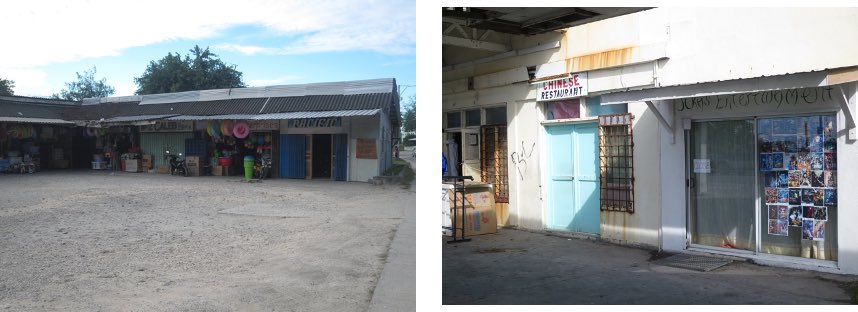
Yet, it remains to be seen how Nauru’s new One China arrangement fares. One of the last public interactions between China and Nauru resulted in a high-profile spat. When Nauru hosted the annual Pacific Islands Forum in 2018, Nauru’s former president Baron Waqa accused China’s envoy Du Qiwen as “very insolent” and a “bully” for interrupting the prime minister of Tuvalu. Du and the Chinese delegation stormed out, with Waqa later demanding a formal apology. Prior to the summit, Waqa had already angered Beijing in refusing to stamp entry visas into Chinese diplomatic passports. Waqa, who has long been vocally pro-Taiwan, has been picked as the next secretary general of the Pacific Islands Forum. It is unclear how Waqa and other Nauruan ministers once allied to Taiwan will handle diplomatic relations with a “big country” they previously accused as “wanting to bully us.” Charmaine Scotty, Nauru’s Minister for Health and Internal Affairs, has already called for the arrival of Chinese tourists, so it is likely that Nauru will follow a policy of Taiwanese amnesia. But the question is: will the Chinese pander to the demands of a Nauru struggling to survive?
The future may be hazy for Nauru, but Nauruans have a proud history of fighting for their land. In the 1960s, energetic local leadership ensured that Nauruans did not accept Australia’s offers of relocation to Queensland: an attempt to wholescale mine phosphate from Nauruan land. To this day, Nauruans have tried to create new economic possibilities, even as some of these endeavors (such as offshore mineral mining) hold serious environmental consequences. Overwhelmingly, the residents I talked to were proud of advancing their communities, holding concerns for the sustainability of their way of life.
The idea that small island states are vulnerable to predation discounts their agency and active diplomatic role. Nauru’s recent swap to the Chinese holds serious implications for the Pacific. After decades of militarization and nuclearism in the Pacific, the U.S. is attempting to expand their military presence to keep tabs on North Korea and prevent China from gaining further influence. The Freely Associated States (the Marshall Islands, the Federated States of Micronesia, and Palau) receive U.S. financial backing in exchange for housing American defense installations. Support for Taiwan remains strong in RMI and Palau, but as Nauru shows this is far from guaranteed. Nauru has long been strategically important to global circuits. In utilizing their own sovereignty, islanders are doing what they can to survive.
About the author: Julia Morris is an Assistant Professor of International Studies at the University of North Carolina Wilmington. She holds a DPhil in Social and Cultural Anthropology from the University of Oxford. Previously, I was a Post-doctoral Fellow at The New School’s Zolberg Institute on Migration and Mobility and a Research Student at Oxford’s Centre on Migration, Policy and Society. Her research focuses on migration governance policies, looking particularly at the moves of western governments towards developing outsourced asylum regimes. Her book, Asylum and Extraction in the Republic of Nauru, is recently published with Cornell University Press.